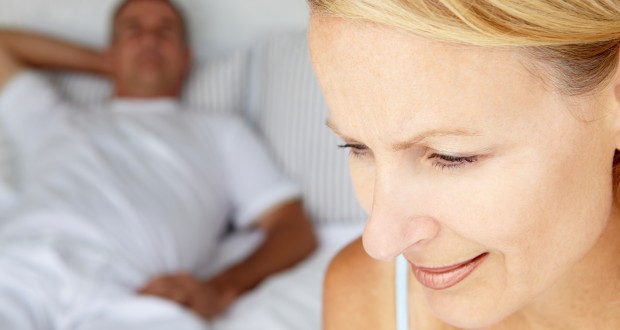By: Red Hot Mamas
Published: February 3, 2015
Does Sex Hurt?
Article by MeLanie Modjoros, MD Sexual Medicine Specialist
As women age, they dutifully visit their gynecologist for their annual exams, get their pap tests, mammograms, and talk openly to their doctors about cholesterol, weight and bone density.
Yet, they are often very quiet about their changing sexual function.
When asked directly, some women will share perhaps their biggest secret – they don’t enjoy sex anymore. They avoid it.
It’s dry, uncomfortable, and even painful. They worry about leaking urine or passing gas. They worry about their partner’s feelings and often don’t discuss it with him.
Instead, they avoid intimacy with their partner, reporting low desire from menopause, or headache, or other bodily discomfort. These women may grieve the loss of their sexual desire and function, but often assume it is part of aging – it’s their new “normal.”
Painful sex is common, but not normal.
It has several different causes, and thankfully, multiple treatments options and solutions are available.
Dryness – Vaginal dryness is related to menopausal hormonal shifts, but it’s also a side effect of some medications, such as decongestants, overactive bladder medications, antihistamines, and oral contraceptives. When the vagina is dry, friction causes painful tears and sex is often followed by prolonged vaginal soreness and burning. Over the counter sexual lubricants are a good hormone-free management option, but they may be inconvenient or messy. Natural substances such as olive oil, coconut oil and aloe vera are good moisturizers for vaginal skin and lubricants for sex.
Prescription medications, which are often estrogen based, may also be appropriate. Replenishing the vaginal estrogen allows the skin to lubricate and stretch more easily.
Muscle pain— Did you know back pain can cause pain in the vagina?
Those tense back muscles are connected to the pelvic floor muscles surrounding the vagina internally. When those muscles spasm, women often experience a deep pain with penetration. Many women are not aware of these internal muscle spasms until they are fully evaluated by a physical therapist who specializes in pelvic floor work.
This type of physical therapy can also improve leaking urine and gas issues that often cause anxiety in sexual situations.
Vaginal atrophy/narrowed or shortened vagina— Women who haven’t had a vaginal delivery, and/or have had a hysterectomy are at increased risk for this condition during their menopausal years. Prolonged abstinence is also a risk factor. When a woman attempts intercourse, she feels that it “won’t fit” or it’s “hitting a blockage.” Once this develops, the patient must be diligent with physical therapy, vaginal dilators and possibly estrogen cream and/or vaginal moisturizers. It can improve but it will take effort, time, and patience.
The best way to prevent atrophy and vaginal narrowing is to have regular penetration (by partner or sex aide) during the perimenopausal years as the natural estrogen is declining.
Other medical problems – Although rare, pain with sex can be a sign of a serious problem, such as a deep abdominal or pelvic tumor or an infection.
Don’t be shy!
If you have pain with penetration, or have stopped having sex because it hurts, talk to your gynecologist or a sexual medicine specialist. Sex should be enjoyable & pain-free at all ages!
- Contributed by our new ‘Ask the Expert’, MeLanie Modjoros, MD Sexual Medicine Specialist
 Red Hot Mamas In Charge of Change.
Red Hot Mamas In Charge of Change.




